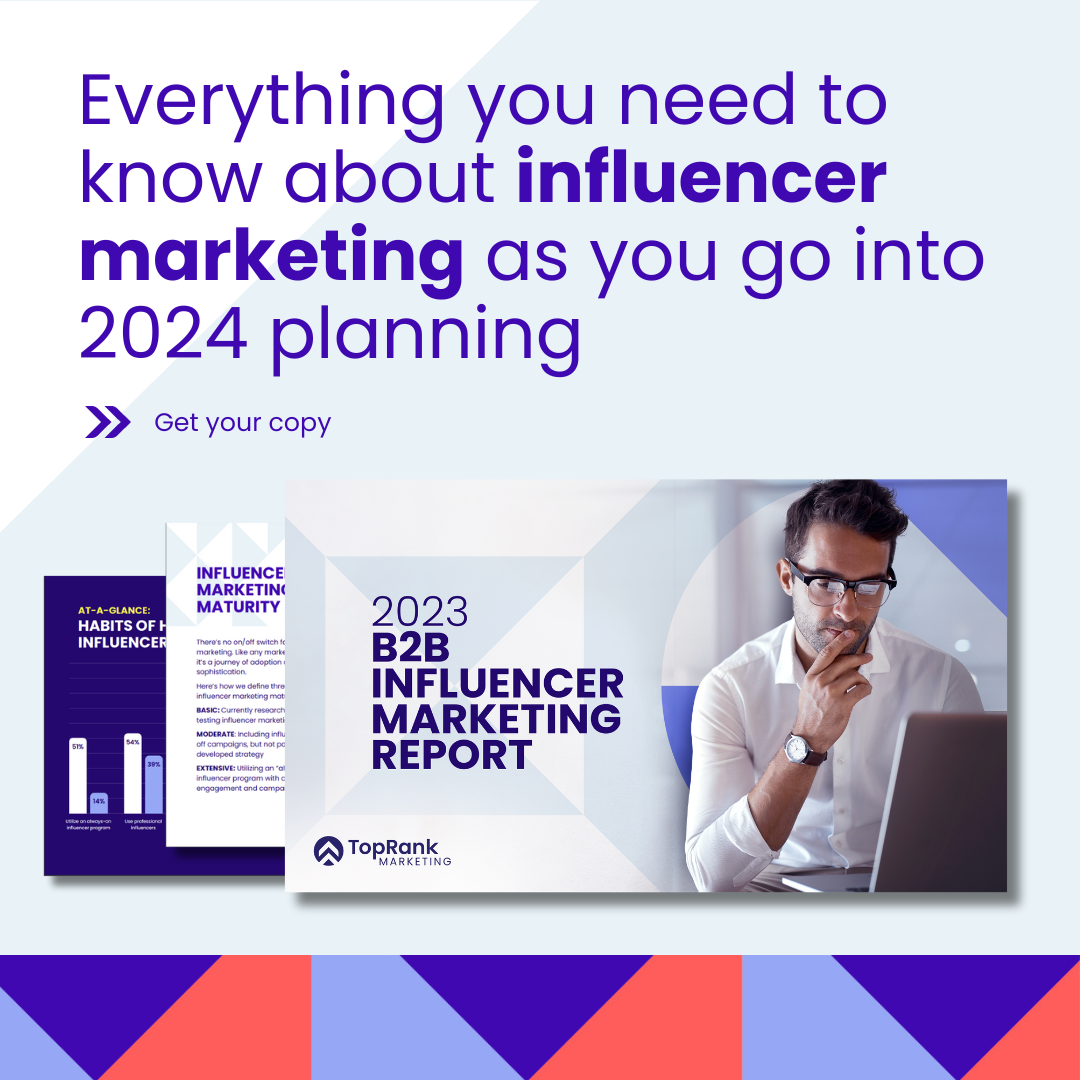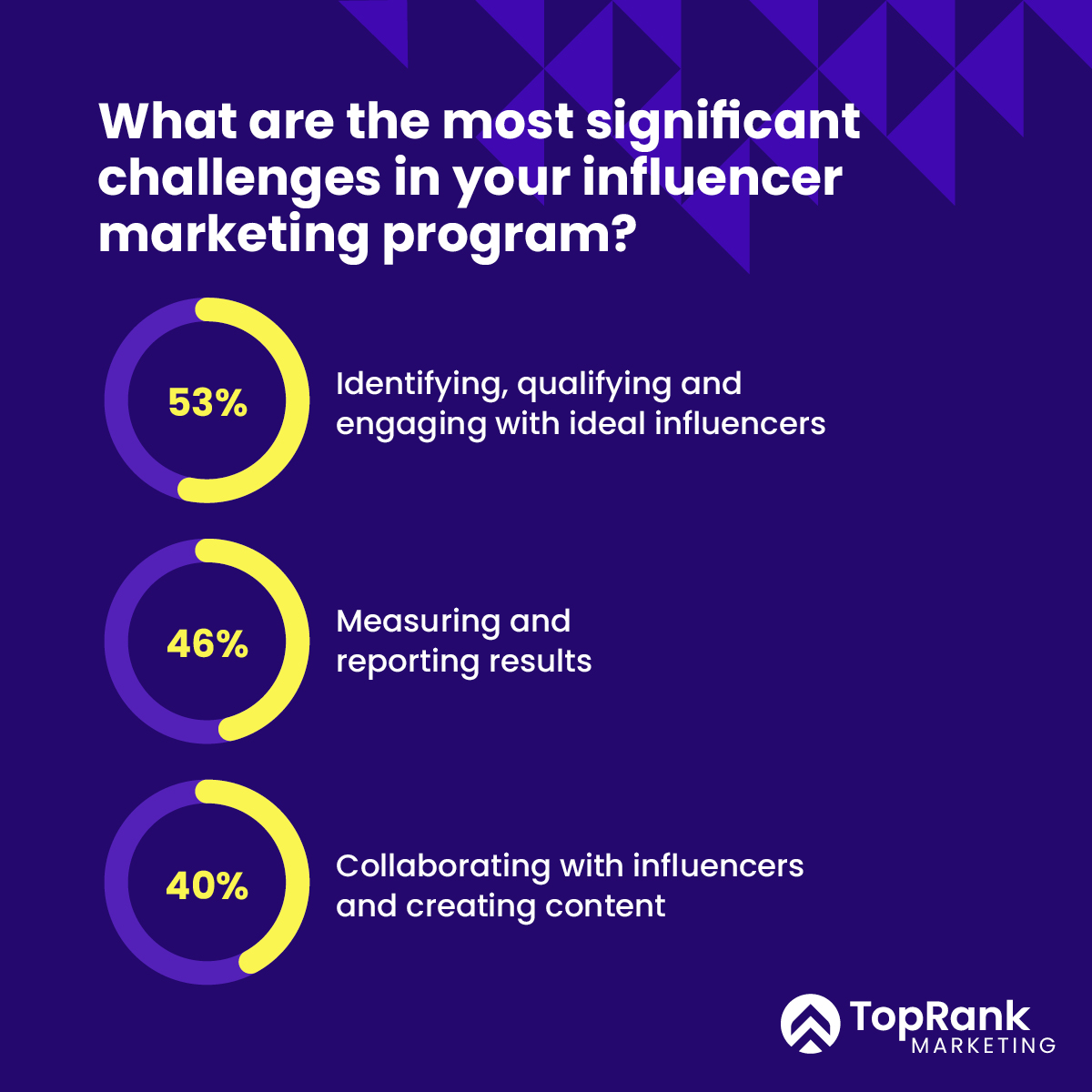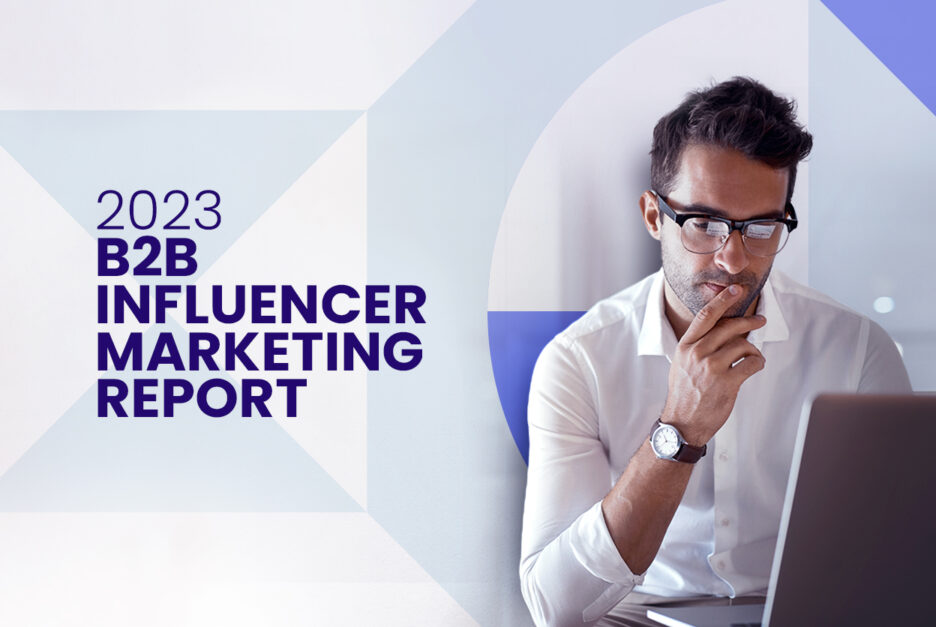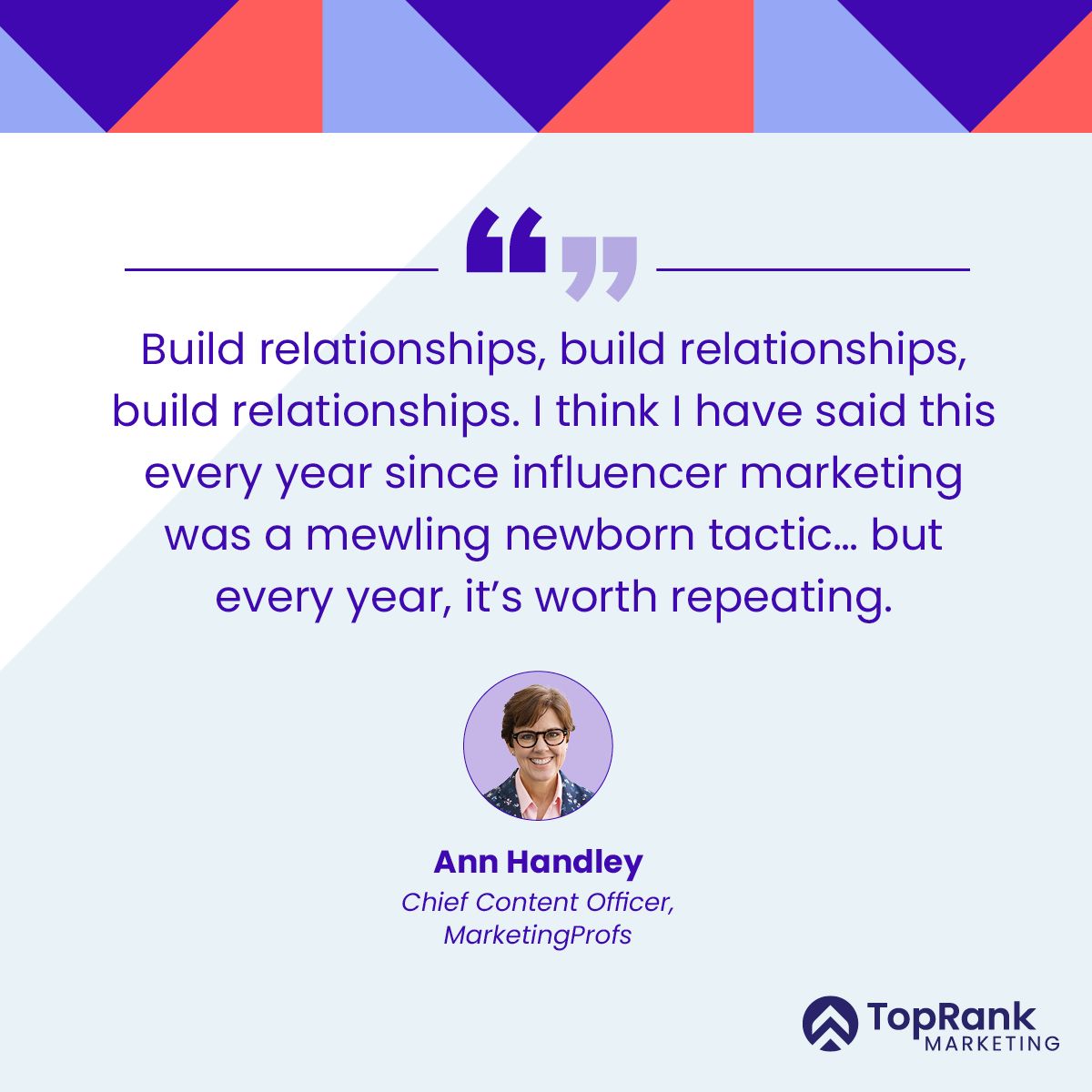When Lee Odden asked me to lead the team at TopRank Marketing, I barely hesitated. It’s an exciting time to be a B2B marketer. I can’t wait to lead our team to new heights.
What makes B2B marketing special right now is we’re finally — finally — leaning into creativity and human emotion. The most successful B2B campaigns connect with people on a human level. They inform, inspire, and even entertain. Imagine that! People like being entertained.
Influencer marketing is one key way to deliver exceptionally valuable, trustworthy and fascinating content. B2B influencers are experts in their subject, with practical experience to back up the stories they tell. And influencer marketing is a specialty at TopRank. I wouldn’t say we invented it… but we did help shape it into the strategic, results-getting powerhouse that it can be.
Today, TopRank Marketing is launching our third B2B Influencer Marketing Report. This time around, we’re featuring insights from over 400 respondents, along with best practices and analysis from some of the brightest marketers around.
The report is good news for B2B marketers. In 2020, only 34% of respondents said they used influencer marketing as part of their overall strategy. This year, 85% reported they had a program.
We also found that those who use influencer marketing to any extent were more likely to report more brand awareness and enhanced credibility, compared to rivals who don’t use influencer content.
Click the image below to get the full report, and read on for highlights from the third edition of the B2B Influencer Marketing Report from TopRank Marketing.

What makes an effective B2B influencer marketing program?
To kick off our research, we asked respondents to rate their level of effectiveness in influencer marketing. Then we were able to see what the most effective programs were doing that the moderately successful weren’t.
The answers were eye-opening. We found nine ways in which the most effective programs differentiate themselves. Among other best practices, these high performers are more likely to:
- Use professional influencers
- Use industry and niche experts
- Use technology, including AI
- Measure and track performance
- And many more (get the full report for the rest)
These habits of highly successful programs lead to impressive results. Our respondents with extensive programs were more likely to report:
- Increased sales revenue (61%)
- Improved brand reputation (58%)
- Improved brand advocacy (47%)
- Improved customers satisfaction and retention (47%)
Follower count isn’t everything
When we asked what traits are most valuable in a B2B influencer, the response was unexpected. Follower count/size of audience took fourth place, beneath:
- Audience sees them as trustworthy
- Relevance of audience and network
- Professional credentials
It’s clear that B2B influence isn’t a popularity contest. If you had to choose between a highly relevant and credible influencer with a smallish audience, or a celebrity with no relevance in your industry but a massive audience, it makes sense to choose the former.
A mix of professional influencers, niche experts, internal influencers and trusted practitioners (like your customers) can be most effective.
Measurement is essential
In our research, 93% of respondents said the pressure to prove marketing ROI has increased in the past year. Nearly a quarter said they saw a significant increase. Measurement is a critical component of a successful program — both for optimizing your current program to continually improve, and for justifying your investment to the executive suite.
Yet despite this increasing pressure, only half of marketers are measuring the impact of their influencer marketing programs. The good news: That 50% were more likely to report their program as extremely successful in raising awareness and credibility.
A robust measurement strategy can include tracking engagement on social media, share of voice, and even tracking conversions and leads generated.
Use of emerging technology contributes to success
Generative AI is one of the few technological advancements where the application lives up to the hype. Marketers are finding AI useful across their entire influencer marketing program, from choosing influencers to measurement and optimization.
As the criteria for evaluating influencers becomes more complex, AI is an essential tool for finding the right people to work with. As data science and AI expert Christopher S. Penn puts it:
The future of influencer marketing hinges on harnessing AI’s unmatched data analysis potential.
Outsourcing can help overcome challenges
When you make influencer marketing a strategic, ongoing program, it takes knowhow and experience to get the best results.

Our respondents said they face significant challenges in their programs.
- Identifying, qualifying and engaging with ideal influencers (53%)
- Measuring and reporting results (46%)
- Collaborating with influencers and creating content (40%)
- Creating and documenting an integrated strategy (38%)
All of these challenges can be mitigated with the right partners on board. An agency that specializes in influencer marketing can help find and build relationships with the right influencers, create a strategy and content, and even help with measurement.
Help from a skilled and knowledgeable agency can be a deciding factor for the success of your program. In our research, 70% of the most effective respondents said their program is entirely outsourced.
An overwhelming 91% of B2B marketing professionals have resoundingly affirmed that influencer marketing is a potent catalyst for realizing their marketing objectives. This resounding consensus underscores the necessity of influencer marketing in the modern B2B marketing playbook.
It’s time to elevate B2B influencer marketing
I’m excited to join TopRank Marketing right as influencer marketing is truly changing the B2B landscape. We’ve seen a surge in adoption over the past year, but challenges remain. For most marketers, it’s less about how to get a program up and running, and more about applying strategic best practices to get better results.
Thankfully, that’s what this remarkable team — my team, now! — is good at.
Download the full 2023 B2B Influencer Marketing Report for benchmarks, best practices, and advice from marketers working for brands like Dell, SAP, Adobe, IBM and more.
Ready to get started? Contact our influencer marketing team now.




